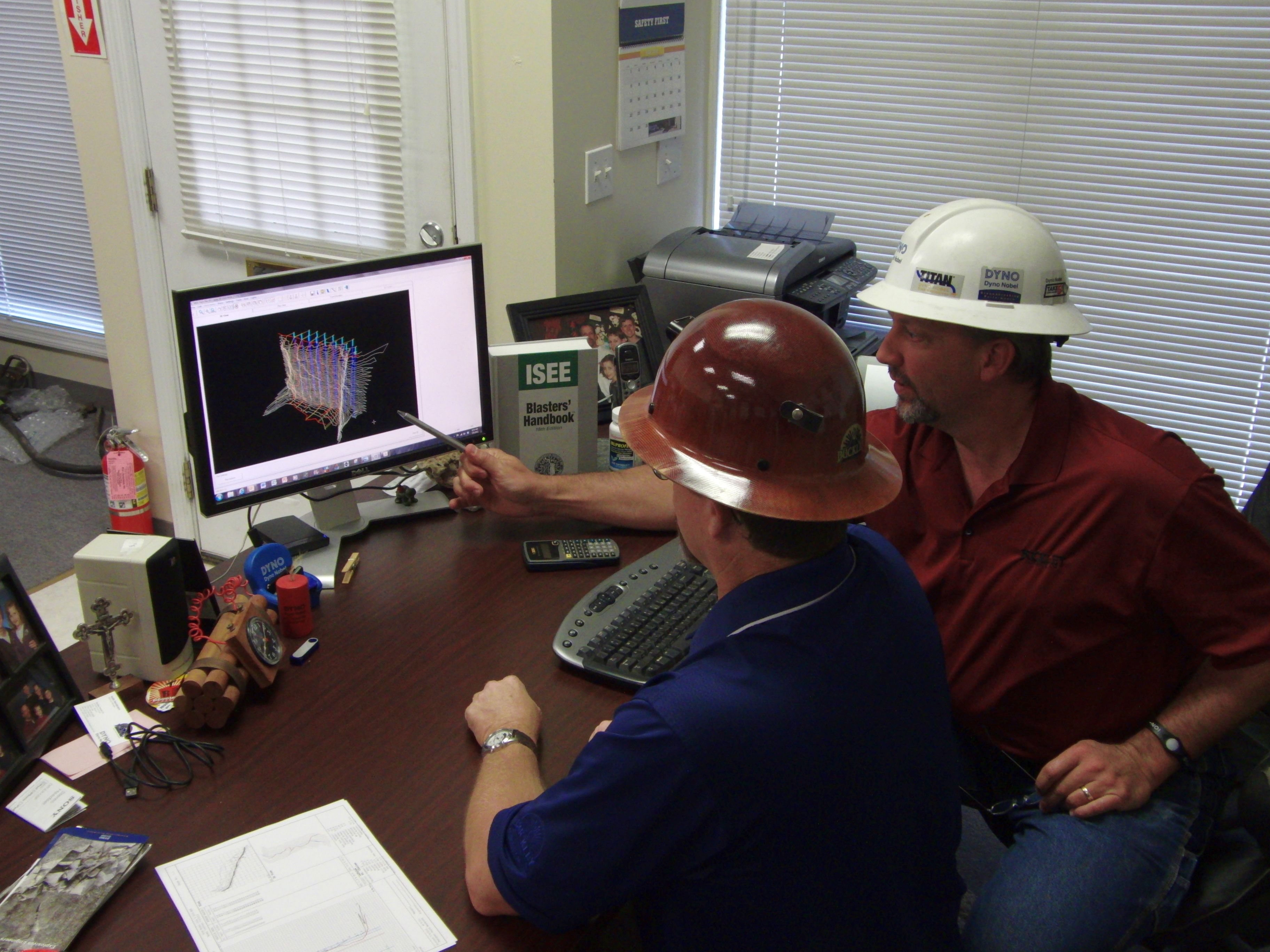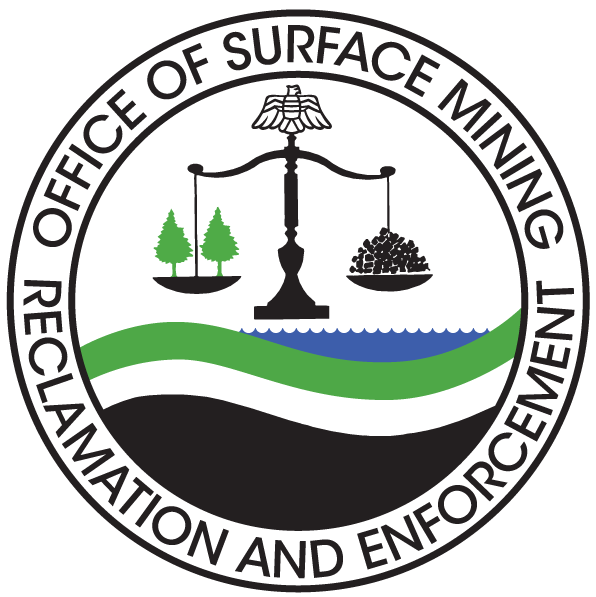Blaster Training

Welcome to the Blaster Training page. To become a certified blaster at a coal mine a person must be trained, gain experience and pass an examination. Here you will find information on the technical and regulatory issues that a blaster must know to have a reasonable expectation of passing the examination. The requirements can be found at 30 CFR 850.13 Certification and Training of Blasters - Training. For coal mines, these requirements are the same for each state although individual states may have more requirements than specified here.
(1) Explosives, including--
- Selection of the type of explosive to be used;
- Determination of the properties of explosives which will produce desired results at an acceptable level of risk; and
- Handling, transportation, and storage;
(2) Blast designs, including--
- Geologic and topographic considerations;
- Design of a blast hole, with critical dimensions;
- Pattern design, field layout, and timing of blast holes; and
- Field applications;
(3) Loading blastholes, including priming and boostering;
(4) Initiation systems and blasting machines;
(5) Blasting vibrations, airblast, and flyrock, including--
- Monitoring techniques, and
- Methods to control adverse affects;
(6) Secondary blasting applications;
(7) Current Federal and State rules applicable to the use of explosives;
(8) Blast records;
(9) Schedules;
(10)Preblasting surveys, including--
- Availability,
- Coverage, and
- Use of in-blast design;
(11) Blast-plan requirements;
(12) Certification and training;
(13) Signs, warning signals, and site control;
(14) Unpredictable hazards, including--
- Lightning,
- Stray currents,
- Radio waves, and
- Misfires.
The OSMRE Blaster's Training Modules help applicants prepare for formal training and testing.
- Welcome
- Module I - Explosives
- Module II - Initiation Systems
- Module III - Surface-Blast Design
- Module IV - Blasthole Drilling
- Module V - Blasthole Loading
- Module VI - Geology
- Module VII - Regulations and Safe Practices
- Module VIII - Controlling the Adverse Effects of Blasting
The following blast design rules-of-thumb will be used in the test.
Office of Surface Mining Reclamation and Enforcement
- Blast Plans 30 CFR 780.13
- Use of Explosives 30 CFR 816.
- Blaster Certification 30 CFR 955
Mine Safety and Health Administration
- Surface Coal, Explosives and Blasting 30 CFR 77.1300
- Underground Coal, Explosives and Blasting 30 CFR 75.1300
Bureau of Alcohol Tobacco Firearms and Explosives
- Federal Explosives Law and Regulations, Orange Book
- Safety and Security Information for Federal Explosives Licenses and Permittees
US Department of Transportation
- Transportation of Hazardous Materials on Public Highways, 49 CFR Part 177
- Federal Motor Carrier Safety Administration, Safe Operation of Vehicles, 49 CFR Part 393
The following groups provide best practices guidelines on the use of explosives. Some references may need purchased.
US Department of the Interior Documents
International Society of Explosive Engineers
- Blasters' Handbook, 18th Edition
- Performance Specifications for Blasting Seismographs 2022 Edition
- Field Practice Guidelines for Blasting Seismographs, 2020 Edition
Institute of Makers of Explosives, Safety Library Publication
- Safety in the Transportation, Storage, Handling & Use of Commercial Explosive Materials, SLP 17
The following venues provide in-person continuing education opportunities for blasters. The number of credit hours for each vary by regulatory authority.
Blaster Certification Class, Gillette, WY; March 19 to 21, 2024
Driller and Blasting Conference, Columbus, OH; March 21 & 22, 2024
Best in the West Conference, Spearfish, SD; April 17 to 19, 2024
OSMRE NTTP Advanced Blasting Course, Gillette, WY; June 3 to 7, 2024.
OSMRE NTTP Blast Inspection Class, Denver, Co, September 10, 11, & 12, 2024
Blasters Certification Class, Gillette, WY; November 12, 13, & 14, 2024
Blasters Certification Class, Salt Lake City, Utah, January 14, 15, & 16, 2024
Online Continuing Education Opportunities
Note: Verify with state blasting coordinators prior to enrolling to ensure CEU hours are approved for the state you are seeking renewal.
ISEE Certification Program - ISEE Certificate Program - International Society of Explosives Engineers
IME Safety Library Publications - IME | eLearning program
Wyoming DEQ Blasting Webinars - Blasting - Wyoming Department of Environmental Quality

